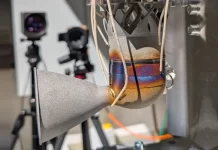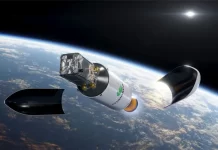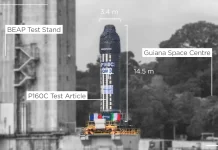Since its founding in early 2022, Maiaspace has begun work on a small reusable launch vehicle. Despite clear interest in the company and its vehicle, Maiaspace has not revealed much since it announced the appointment of the company’s CEO Yohann Leroy. I was lucky enough to get an exclusive sitdown with that very CEO to speak about the company’s progress over the last three months.
The approach
Although certainly not the pioneer of the practice, SpaceX has utilised the vertical integration model to great benefit with the company capturing a large percentage of the global launch market. Many launch startups developing vehicles today have chosen to replicate that model by taking on the majority of the development work themselves.
Maiaspace, however, intends to forge a different model. Again, it’s certainly not a new approach, but according to Yohann, Maiaspace will instead be relying “on people who have been doing it for decades” as well as newcomers in the ecosystem for some components of its vehicle. And, of course, the company will lean on the work done by its parent company ArianeGroup, in particular for the rocket’s engine.
“It’s pragmatism. Starting everything from a blank page in our view is not the most efficient way to reach the market quickly,” said Yohann.
The vehicle
The Maia launch vehicle will utilize three Prometheus engines for the rocket’s first stage. The baseline configuration looks to utilise a single vacuum-optimized variant of the same engine for the rocket’s second stage.
In addition to Prometheus, Maiaspace will also lean on the work done by ArianeGroup for the Themis rocket stage demonstrator. According to Yohann, the team is exploring the possibility of using several technologies developed for Themis aboard Maia, whose first stage will be derived from Themis.
Currently, Maiaspace is working towards launching Maia from Kourou in French Guiana. However, just like many other European launch startups, the company has had to apply to CNES for the right to launch from the facility following a call for applications from the French space agency late last year. The agency plans to convert the old Diamant launch facility with the aim to host several different commercial launch vehicles, as well as some Themis demonstrations.
Maiaspace is also examining potential alternative or complementary launch facilities throughout Europe. However, the company has not yet made any decisions and is using Kourou as the baseline launch facility as they develop the vehicle.
When asked about the number of launches Maiaspace expect to launch per year following the maiden launch in 2026, Yohann said that they are creating facilities that can “easily and quickly scale up production” if it’s needed. He added that Maiaspace was setting “ambitious commercial targets but wanted to be realistic at the same time.” “We do not need to launch once a week for our company to be sustainable and profitable,” he said.
The financing
ArianeGroup has supplied Maiaspace with seed funding that has enabled them to begin the process of building out the company. However, it hopes to begin sourcing additional funding from other investors as early as the fourth quarter of 2022.
Although Yohann would not reveal how large the company expects this funding round to be, he did reveal that Maiaspace will be looking to raise several hundred million euros overall over the course of three years. This will allow the company to develop the rocket and begin commercial operations.
Maiaspace will, however, not be looking to raise R&D funding from public sources like the European Space Agency and France 2030. According to Yohann, the company is focused on moving quickly and ensuring that all decisions are made with one goal in mind, competitiveness. He explained that subsidies sometimes come with limitations that force a company to make decisions that aren’t necessarily in its best interest. It is for this reason that Maiaspace is looking for private investors that will act as partners instead of stewards of a greater cause.
The company
Currently, the company is expected to be made up of 25 employees by the beginning of September and hopes to scale up to several hundred by 2024. Some of these initial employees have moved over from ArianeGroup accounting for less than 50% of the current staff complement. However, Yohann explained that he expects the percentage of employees moving over from its parent company to be minimal moving forward with a focus on hiring a diverse workforce from across Europe and the world.
According to Yohann, the Maiaspace hiring drive is currently focused on finding engineers. However, he stressed that they are also looking for “the right commercial force” to ensure the company can start interacting with customers as early on in the development process as possible.




